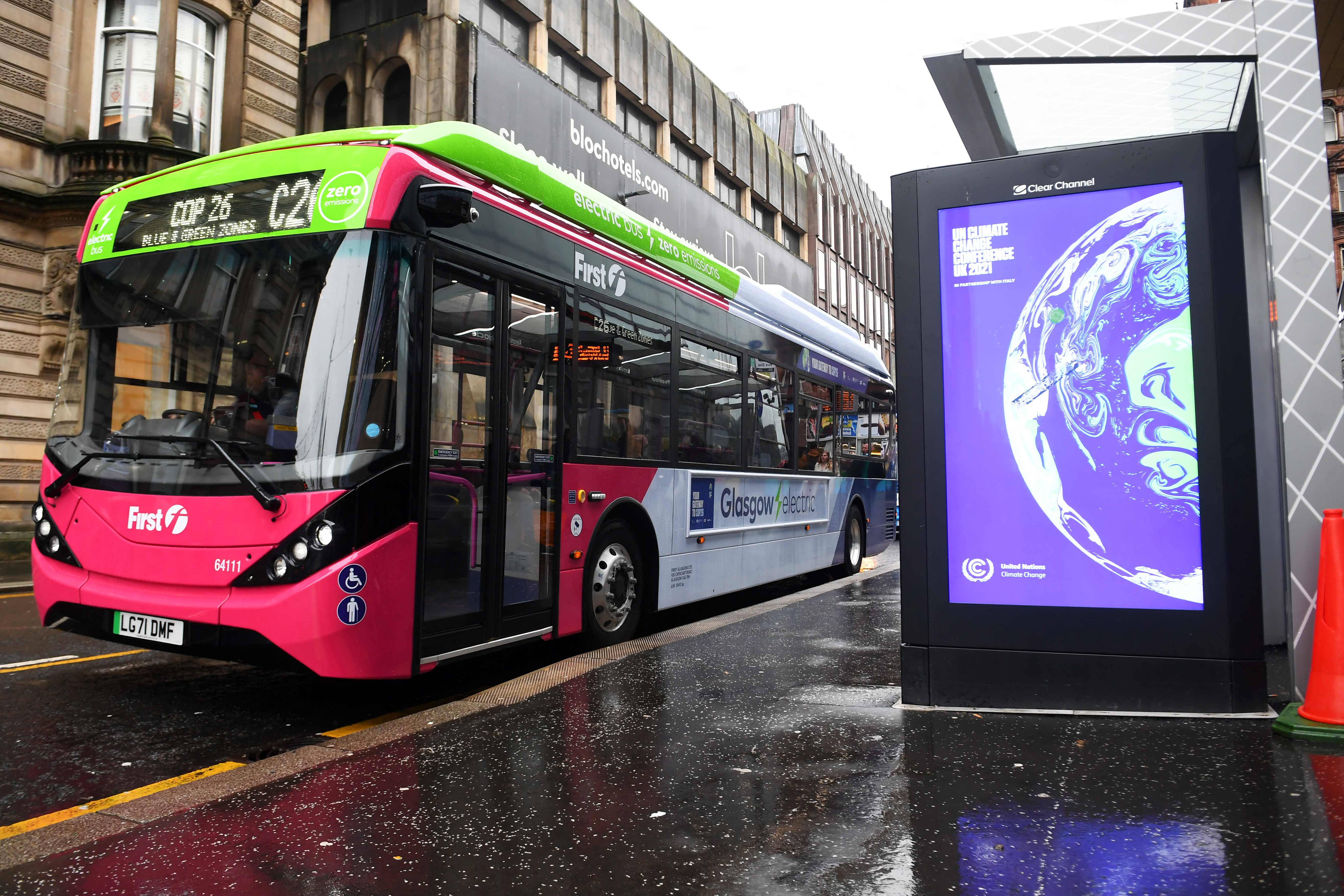Cop26: Fossil fuel buses and lorries face sales ban from 2040 as transport leads summit agenda
13 countries call on others to join road decarbonisation effort ‘as soon as possible’

Low-carbon travel leads the agenda on ‘transport day’ at the Cop26 summit as Boris Johnson returns to Glasgow to push for an improved final draft outcome.
A group of 13 nations has set out plans to end the sales of diesel and petrol buses and lorries by 2040 — matching an existing UK pledge, and 10 years after the end of petrol and diesel cars.
Described as a “turning point for the global transport sector”, the countries will work together towards an interim target of having 30 per cent of sales of new medium and heavy-duty vehicles being zero-emissions by 2030, with 100 per cent a decade later.
The countries include: Austria, Canada, Chile, Denmark, Finland, Luxembourg, Netherlands, New Zealand, Norway, Switzerland, Turkey, Uruguay and the UK.
Steven van Weyenberg, the Netherlands’ minister for the environment, said: “For too long our medium- and heavy-duty vehicles were too difficult to decarbonise. But technology is improving fast and costs are reducing quickly.
“So now is the time to speed up. Not just for the climate. Everyone has the right to breathe clean air. This cuts both ways: investments now will lead to more green jobs in the coming years. I call on other countries to join our effort as soon as possible.”
Britain is also set to announce a further declaration on zero-emission cars and vans, which will reportedly bring together national governments, states, regions, cities, vehicle manufacturers, businesses and investors under a banner of working towards 100 per cent zero-emission car and van sales by 2035 in leading markets, and no later than 2040 globally.
It is hoped the agreements will help make meaningful progress towards reducing road emissions substantially and bring the sector in line to meet the goals of the Paris agreement and limit average global temperature rises to 1.5C above the pre-industrial era.
The decarbonisation announcements come as UK transport secretary Grant Shapps said travel, including aviation, should be “guilt free” and said the Government did not see flying as “the ultimate evil”.
It comes amid criticisms of people attending Cop26, including the Prime Minister, using planes for short journeys.
Mr Shapps told The Telegraph: “I believe, as transport secretary, that we can get to guilt-free travel in this country. There’s been an idea that’s been allowed to percolate that somehow if we’re going to meet all these different carbon commitments we are going to need to get to the point where we all stay home, that travel is somehow something which attracts great guilt.
“It gets worse the further you travel, so flying is, of course, the ultimate evil, as it’s presented, and that’s just not what we believe as the British government.”
He said any changes to the way we live our lives “should not be the inability to go and visit your friends and family and do business”.
Former Labour leader Jeremy Corbyn is also due to speak at the conference as he takes part in a debate on the UK’s railways.
Additional reporting by PA.
Join our commenting forum
Join thought-provoking conversations, follow other Independent readers and see their replies
Comments
Bookmark popover
Removed from bookmarks